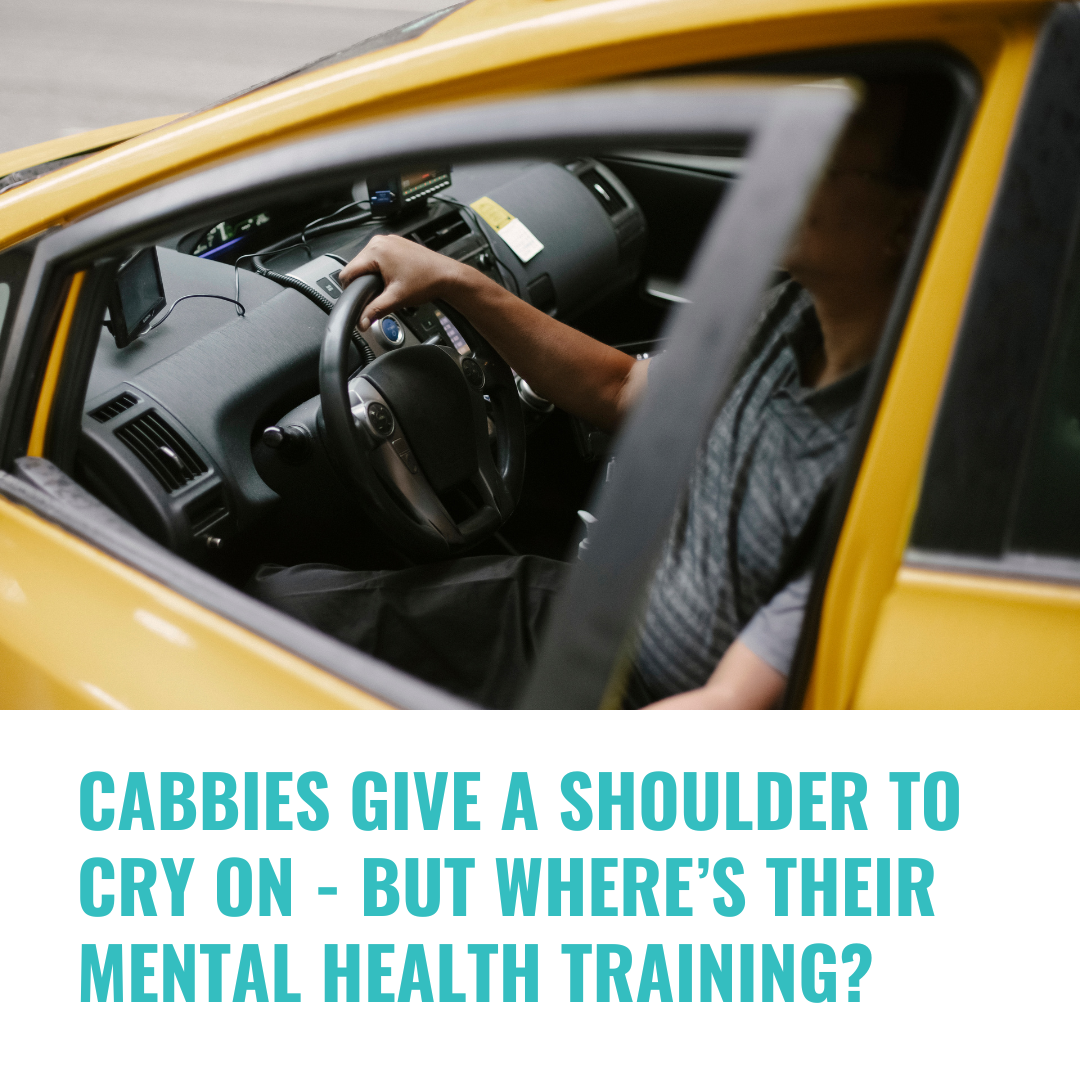“Once the sun goes down, and the closer you get to midnight and the alcohol’s flowing, people tend to turn out a bit differently after a few beers,” he says.
Often, the journeys end in a funny story. There was the time a young couple were discussing chucking a sickie and skipping work the next day, when Mr Brooks realised he knew the woman’s boss and told her “you probably should go to work tomorrow”. If he had to put a figure on it, he’d say about 20 per cent of his passengers open up and share parts of their lives from the back seat. “Sometimes when they get in, they say ‘just drive, get me out of here’,” he says. “That normally leads to a longer conversation.” Paul Brooks sits in the front of his taxi. He jokingly dubs this part of his work “free therapy”. But the 50-year-old says there’s a more confronting side to the job. He’s one of the drivers registered to pick up people to remove them from domestic violence situations. “And you’ll take a single person or a mother with a couple of kids, and they’ll try and get as much of their luggage and belongings in the boot, and you’ll drive them from one side of town to the other, or somewhere else,” he says. As someone who witnessed domestic violence as a child, it can sometimes hit close to home. He admits there have been times he’s left a job, driven around the corner and shed a tear. Like most drivers, Mr Brooks has no formal training in mental health first aid, or how to deal with vicarious trauma. But he often finds himself on the frontline. On a recent job, he picked up a woman he believed was a mother. He says they stopped at a service station for her to buy a bottle of water and it then became clear she went to the bathroom to use drugs. “You pick up fares like that, and I tend to think about it for the rest of the night,” he says. As he talks, it’s clear he often finds himself thinking about the barriers for people on the margins of society to access help. “I don’t know what the solution is,” he says. Vicarious trauma is just part of the job for some workers The Commonwealth’s Australian Institute of Health and Welfare suggests about one in five Australian adults has experienced a mental disorder in the past 12 months. The data indicates about half of Australians will experience a mental disorder over their lifetimes, with the institute noting “a person does not need to meet the criteria for a mental illness or mental disorder to be negatively affected by their mental health”. Psychiatry professor Andrea Phelps is the deputy director of the Phoenix Australia Centre for Post traumatic Mental Health at the University of Melbourne. The centre speaks to a range of people for mental health training and research. Many are involved in traditionally frontline jobs like defence or have experienced natural disasters. Others work in industries where trauma may not be front of mind. Professor Phelps says often, those workers have never thought about the impact interacting with distressed, traumatised or abusive people at work was having on them. “They’ve just accepted that there are difficult calls that they have to take sometimes, and that kind of thing,” Professor Phelps says. Exposure to other people who are experiencing difficult situations can cause vicarious or second-hand trauma. “We’re not just talking about feeling empathy for someone, we’re talking about people who actually then suffer themselves, as a result of having supported someone else,” Professor Phelps says. “And then that’s obviously something that we need to try and avoid.” The ‘three d***head rule’ and other coping strategies Professor Phelps says there are broadly three ways vicarious trauma can present — feelings of psychological distress or helplessness, intrusive thoughts and/or physical symptoms like tension and increased heart rates. Longer-term, people experiencing vicarious trauma can feel perpetually on edge, have disturbed sleep and begin to withdraw socially. Some people use drugs or alcohol to cope. Paul Brooks has heard more about the lives of strangers than most, and thinks his colleagues could have a bigger role to play in providing help. But for more training or even flyers for referral services, he says drivers would need to be paid more. He is pragmatic when he concedes higher pay is “a whole other can of worms” that is unlikely to happen. “People know cab drivers are there,” he says. “But it’s really weird, they never really take enough attention. “If we trained our cab drivers a little better than we do, I personally believe the streets would be a hell of a lot safer,” says Paul. Original article can be found here.
2 Comments
Brendan OSullivan
12/7/2022 01:29:58 pm
Great article
Reply
laster wick
4/10/2023 09:05:56 pm
"I want to share a personal experience about the importance of mental health. A while back, I was struggling with anxiety and stress, and it was affecting every aspect of my life. Then, I came across this incredible resource at https://3034bct79wgy3x7-pjq4v7fq0y.hop.clickbank.net that offered me guidance and support to improve my mental well-being.
Reply
Leave a Reply. |
NewsDRIVE NOW reports on various topics regarding the Archives
December 2022
Categories
All
|
DRIVE NOW Magazine is published by Trade Promotions Pty Ltd, Ashwood VIC Australia. © 2022 DRIVE NOW |


 RSS Feed
RSS Feed